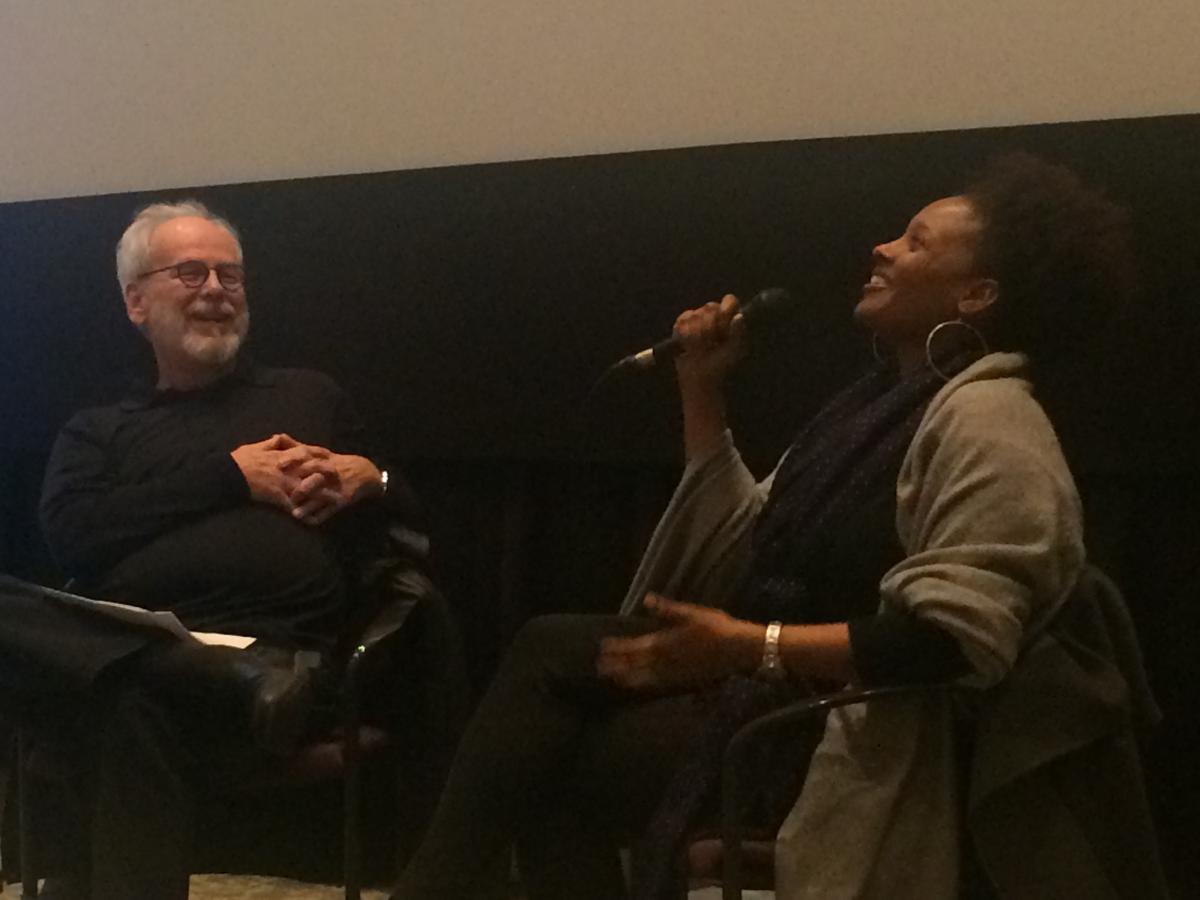Pulitzer-Winning Poet Tracy K. Smith Sheds Light on Writing Career

Students and faculty got a glimpse of Pulitzer Prize winner Tracy K. Smith’s early life as a writer, her influences, her views on the current political scene, and her successful transition to a memoir writer on Thursday, February 23.
Smith was interviewed by Senior Writer-in-Residence Richard Hoffman at the Bill Bordy Theater. She was invited to campus as part of the WLP Reading Series, which is sponsored by the Department of Writing, Literature and Publishing.
Her most recent poetry collection, Life on Mars (Graywolf Press, 2011), won the 2012 Pulitzer Prize for Poetry. She won the Cave Canem Poetry Prize in 2002 for her first collection, The Body’s Question (Graywolf Press, 2003), and the James Laughlin Award from the Academy of American Poets in 2006 for her second book of poems, Duende (Graywolf Press, 2007). In 2015, she published a memoir, Ordinary Light (Alfred A. Knopf).
“Loss was one of the driving reasons behind my choice to become a poet,” Smith said. “My mother was going through the end stages of cancer, so this sense of loss seemed to be a built-in feature of every poem I read or wrote.”
Discussing her favorite writers and poets, Smith raved about the works of novelist James Baldwin, adding that his sentences “open up new dimension, possibilities, meaning, and insight.”

Smith said of the political climate that while she is not yet at the point of writing fiery poems, she is slowly getting there.
“I am hurt, sick, and sad, but I have always felt that anger isn’t a productive emotion,” she said. “Having said that, I have been writing poems lately and although it is not speaking to this administration, it is focusing on love, shame, anxiety, and what we can do for ourselves.”
After the interview, excited students quizzed Smith on her future works (which include operas), her inspirations, and her take on utilizing other forms of media to increase the reach of her work.
“For opera, there is a small, intentional audience,” Smith explained. “For instance, my new project is rooted in a place or a culture that has a strong musical tradition and spiritual aspect. I think there is a way those forms can be augmented to what the aesthetic parameters of an opera might be,” she said, adding that there is a way to make lesser known media forms accessible to a nontraditional audience as long as the material is relevant.
At the end of the session, Josh Samuels ’20 asked Smith if she could list a few words that define our time. After much deliberation, Smith said, “love, distraction, focus, and resistance.”
Note: This story has been edited from the original to correct Richard Hoffman’s name.
Categories